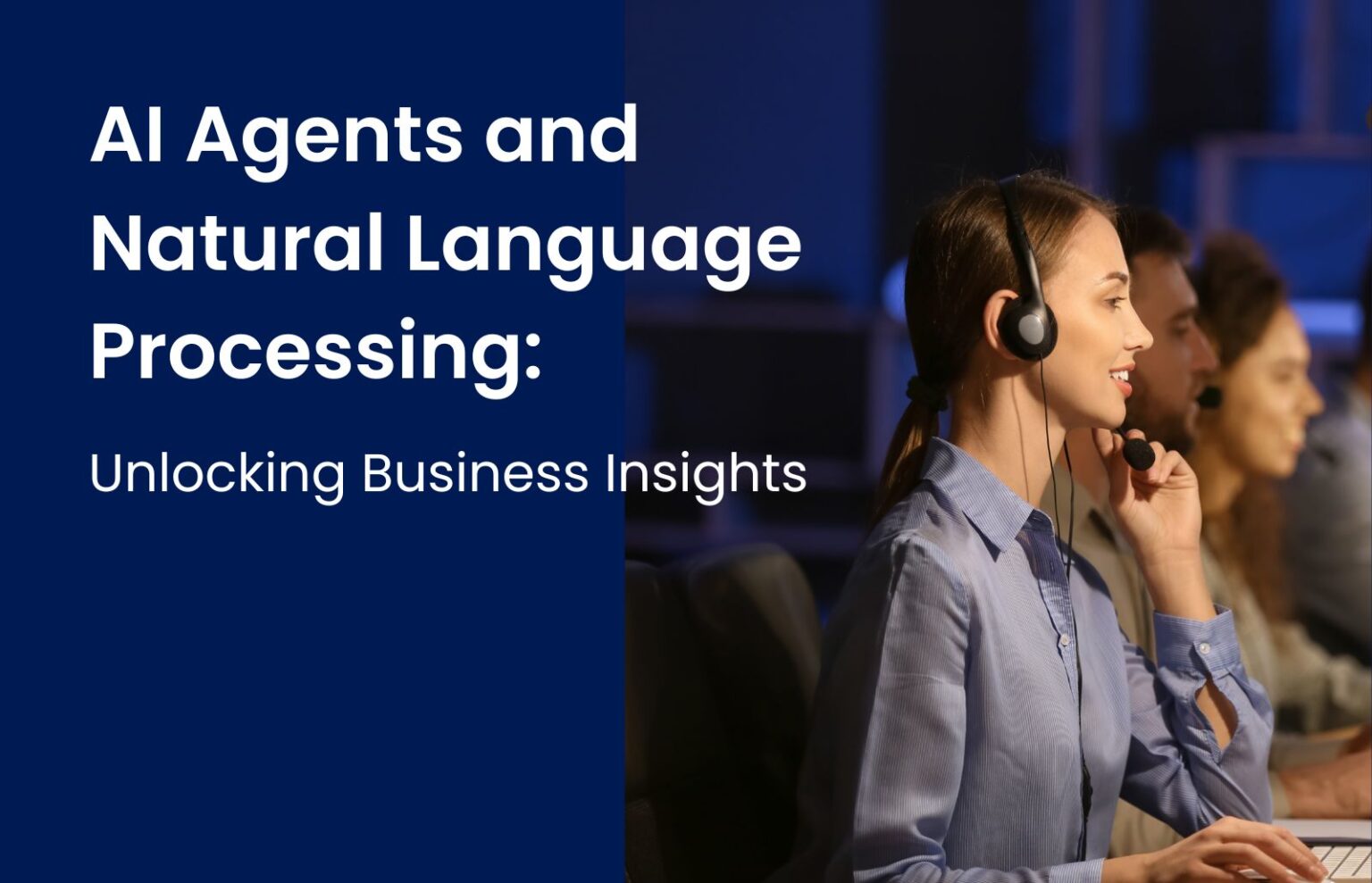Introduction
The digital age compels businesses to continually find novel methods to extract valuable data insights from massive datasets. Companies now use AI agents and NLP (Natural Language Processing) as powerful tools that help them analyze and interpret textual data for effective decision-making. Businesses can leverage these technologies to automate tasks and improve customer experiences which helps them maintain a competitive advantage. The blog examines how AI agents and NLP technologies enable businesses to access valuable insights and revolutionize decision-making methods.
Understanding AI Agents and NLP
Modern artificial intelligence systems fundamentally depend on AI agents and natural language processing as core elements. AI agents function as independent entities which analyze their surroundings to make decisions and perform actions without human assistance. AI agents operate as versatile tools because they function with either predefined rules or machine learning models.
NLP empowers computers with capabilities to understand human language and also allows them to generate responses in natural language. This area consists of several specialized domains such as syntactic analysis, semantic understanding, sentiment analysis, and speech recognition. AI agents combined with NLP technologies result in intelligent systems that perform real-time text analysis to extract meaningful insights.
Business industries are implementing AI agents and NLP technologies to make their operations more efficient and boost customer service and decision-making processes.
AI agents and NLP technologies enable businesses in every sector to enhance operational workflows and customer experiences while improving decision-making processes. Some key applications include:
1. Customer Support Automation
AI agents and NLP-based virtual assistants and chatbots transform the customer service landscape. Intelligent systems provide personalized recommendations while resolving complaints and handling inquiries which leads to reduced response times and increased customer satisfaction. Amazon and Google use AI-powered virtual assistants to deliver smooth user experiences.
2. Sentiment Analysis for Brand Management
The analysis of customer feelings plays an essential role in maintaining brand reputation and developing marketing strategies. Businesses use NLP-based sentiment analysis to evaluate social media posts together with customer reviews and survey responses in order to understand public perception. By categorizing customer feedback into positive, negative, or neutral responses AI agents allow brands to quickly address issues and enhance their marketing strategies.
3. Market Research and Competitive Analysis
AI-powered tools review extensive datasets from news articles and reports to competitor websites to obtain information about market trends and consumer behavior. Businesses use AI agents along with NLP technologies to detect new business opportunities and keep track of competitors while optimizing their product lines through analysis of data.
4. Document Processing and Automation
The legal, healthcare, and financial sectors require extensive documentation for their operations. AI-based NLP systems automate tasks such as data extraction and contract analysis while summarizing documents which cuts down manual work and decreases errors. Automated processes boost productivity by enabling professionals to dedicate their time to more valuable tasks.
5. Fraud Detection and Risk Management
AI-driven NLP models enable financial institutions to identify fraudulent transactions and manage risks. AI agents detect security threats by examining transactional data and customer communications along with regulatory documents to uncover anomalies. Businesses maintain compliance and protect sensitive information through this proactive strategy.
How AI Agents and NLP Work Together
AI agents combined with NLP tools allow companies to streamline data management tasks and derive practical intelligence. Here’s how these technologies collaborate:
- Data Ingestion: AI agents gather textual data from multiple sources including emails, customer feedback, and online forums and perform preprocessing on it.
- Language Understanding: NLP tools including tokenization methods together with named entity recognition and part-of-speech tagging facilitate data analysis and interpretation.
- Contextual Analysis: Deep learning and transformer-based AI models analyze and categorize data to extract sentiment and identify core topics and intentions.
- Decision Making and Action: Business leaders receive generated reports from AI agents which use extracted insights to initiate automated responses or recommend strategic actions.
Challenges and Future Prospects
The use of AI agents and NLP technology leads to numerous advantages but multiple challenges remain.
- Language Complexity: NLP systems struggle to interpret slang expressions and sarcastic language and process data in multiple languages.
- Data Privacy Concerns: Text data processing at large scales brings about challenges related to security and compliance.
- Bias and Ethical Considerations: AI models develop biases through their training data which influences their decision-making fairness.
Current developments in AI technology including explainable AI (XAI) and ethical NLP work towards resolving these existing issues. Next-generation AI agents and NLP systems will deliver enhanced precision and deeper comprehension of context with improved adaptability for numerous sectors.
Conclusion
Businesses experience transformation through AI agents and NLP which enable intelligent automation systems and improve customer interactions while extracting valuable information from unstructured data. Organizations that adopt AI-based solutions will obtain a competitive edge in making decisions powered by data as technology progresses. Businesses that invest in AI agents and NLP now will secure a more intelligent and streamlined future.

